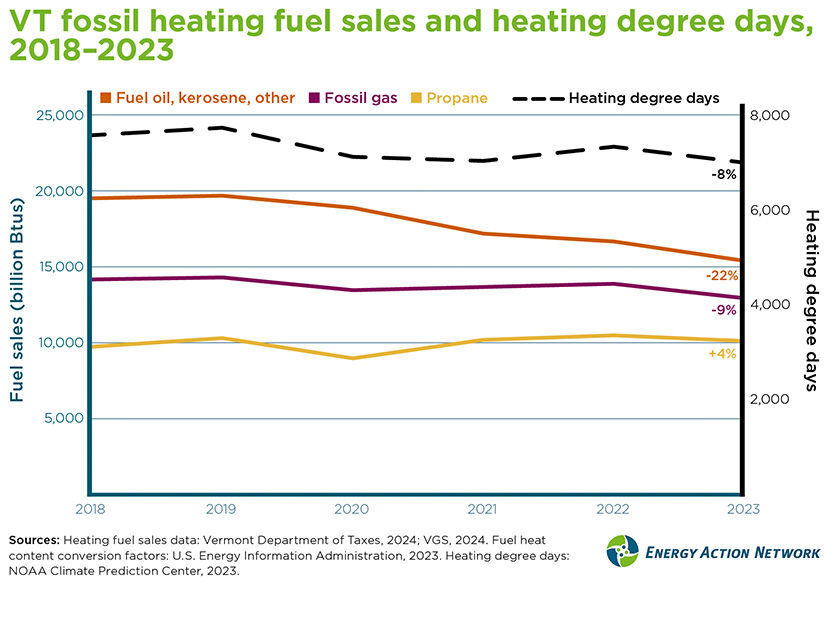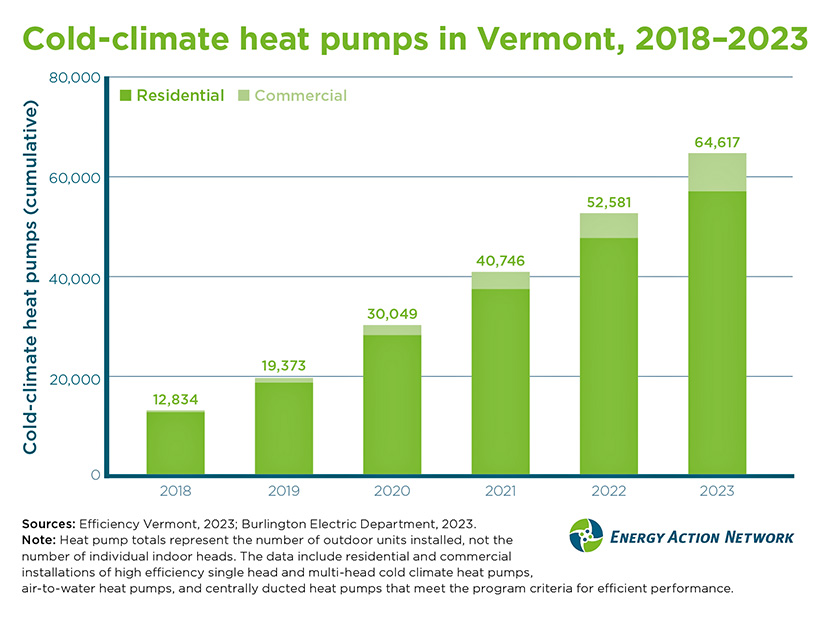
Vermonters are using less fossil fuel for heat in recent years, partly because winters have been trending warmer but also because more buildings are relying on electric heat pumps.
The Energy Action Network lays out the data in a new report showing heating fuel sales lower than the previous year in four of the five years from 2019 through 2023.
The total decrease from 2018 to 2023 was 12% as measured by Btu, and that came even as the state’s residential housing stock expanded by 2.7%.
Meanwhile, annual heating degree days (HDD) were 8% lower in 2023 than in 2018.
And the heat pump count climbed sharply each year during that period, from 12,834 in 2018 to 64,617 in 2023.
The Energy Action Network, which unites more than 200 organizations working to achieve Vermont’s climate and energy goals, said the warmer winters are the largest factor in the declining use of heating fuel. The authors calculated the impact of weather at about 50% of the total reduction.
Vermont has a longer and colder heating season than most states, and while its annual HDD total has ranged from fewer than 7,000 to more than 8,000 over the past 33 years, a warming trend has been observed.
“Several other factors likely played a role, including increased adoption of electrification, efficiency and other pollution reduction measures,” the authors wrote in the May 2024 report. Largest among those would be high-efficiency heat pumps, which EAN estimates account for about 28% of the decrease in heating fuel sales.
That decrease was not uniform.
Fuel oil and kerosene sales were down 22.2% from 2018 to 2023, but fossil gas sales decreased only 9% and propane sales increased 4.3%.
Some factors are hard to quantify — for example, the authors made no attempt to estimate how many people in the heavily forested state increased the amount of wood they burned or turned down their thermostats in attempts to economize as fossil fuel prices soared. But they saw no decrease in the quantity of fuel sold as prices rose and no decrease in sales as prices fell.
They estimated smaller impacts on fossil heating fuel sales from installation of higher-efficiency residential fossil-burning equipment (7% of the total), residential weatherization (5%) and wider use of heat pump hot water heaters (3%).
The report warns against Vermont relying on a continued warming trend to meet its climate goals.
“To be less dependent on the whims of weather — so that we are not counting on record-breaking warm winters to meet thermal sector emissions reduction targets — more concerted efforts to help customers install and properly operate heat pumps for both space and water heating and complete weatherization projects will be necessary to achieve more predictable and durable emissions reductions,” the authors write.




